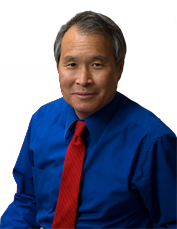Protect Your Money
This is a turbulent time in the world of money. By mid-February, 2016, most U.S. stock market indices were down 10-16% from their all-time in May, 2015. The Dow-Jones Index closed on Friday, 4/24/2016 at 18,003.75, within 2% of the 52-week high on May 18, 2015, when the Dow-Jones Index closed at 18,298.88. People are confused as to how to protect their money.
Protect against the next Stock Market Crash: Warren Buffett is known as “The Stock Market King” and he uses one indicator to tell him whether the stock market is over-valued or undervalued. It’s the Buffett Indicator, which is the value of all Corporate Stocks traded on the public exchanges divided by GDP (Gross Domestic Product). Since 1950, the average (mean) has been 69.5%.
At the peak of the Dot-Com Boom in early 2,000, it was 151.3% and the dropped to about the mean (69.5%) during the Dot-Com Crash. At the peak of the stock market in October, 2007, it was above 115% and then dropped to 59.5% during the low of March, 2009, after the 2008 stock market crash. In March, 2016, the indicator is estimated to be about 119.5%. No one has a crystal ball, but this level is almost double the long-term mean of 69.5%. Is there any logical reason why you want to experience the 3rd major stock market crash of this century?
Protect against the next Bond Market Crash: Bill Gross is known as “The Bond King” and until he left PIMCO due to a disagreement with the Board, he had built PIMCO into the largest bond fund in the world, with about $2 trillion of assets. In July 31, 2012, he had a dire warning that “We are in a New Normal, a prolonged slow-growth period. Expect to only earn 2% in bonds and 4% in stocks.” His prediction proved to be true. At the close of April 22, 2016, the US 10-Year Treasury yield was 1.88%; the 30-Year Treasury yield was 2.70%; the Bloomberg 10-year Muni Bond Index yield was 1.68%; and the 30-year Muni Bond Index yield was 2.59%. When interest rise to historical norms, the value of your bond can drop by over 50%. If you Google “The Effect of Higher Interest Rates on Bond Yields”, you will see warnings on the SEC, FINRA, and many other websites.
Protect against Limited or Biased Financial Advisors: When one says the word “Investment” almost all Americans think of Wall Street. That’s because virtually every 401(k), 403(b), IRA, or any other tax-deferred retirement savings vehicle is managed by firms tied to Wall Street investments only. At its core, Wall Street only has 3 investment asset classes: stocks, bonds, and cash. In practice, cash is only a temporary holding pen, until the stockbroker sells you either stocks or bonds, because the firm can’t charge you the typical goal of 3% total fees (including hidden fees in the mutual funds) if your money is earning less than 3% in cash. Yet, there are many other asset classes besides stocks and bonds. Examples include: precious metals such as gold and silver; foreign currencies; farm commodities such as grains or meats; equipment such as John Deere in the farm sector or Caterpillar in the construction sector. In addition, there are many real estate formulas, whether dealing in single family houses; apartments; office buildings, or hotels. Harry Markowitz received the 1990 Nobel Prize in Economics. He developed the Markowitz Efficient Frontier Portfolio, which is the mathematically ideal tradeoff of risk vs. reward. He proved that it’s impossible to approach the Efficient Frontier if you only have the standard Wall Street asset classes of stocks, bonds, and cash.
Conclusion: If you value your life savings, there’s no reason to risk losing 20-50% in the next stock and bond market crash.
Office Address
90 South Kyrene Rd
(Says Suite 1 on the front door)
Chandler, Arizona 85226
Click here to schedule a FREE Strategy Session
with Dr. Wong

